
Hugh Grant flips the script in the riveting faith-based horror movie Heretic, on release this November. The one-time heartthrob plays a nefarious loner who traps two Mormon women (played by Sophie Thatcher and Chloe East) inside his house for the express purpose of testing their faith. His character, Mr. Reed, appears to have constructed his deceptively ordinary home atop an imitation of the circles of hell from Dante's Inferno, so you know he's serious.
The movie, which comes from the writers of A Quiet Place, interrogates belief systems and ideologies without ever compromising the suspense that genre fans expect. The main selling point is evidently Grant going evil, but how unique is this, and what does it tell us about Grant's alleged villain's era? We're taking a closer look.
1. The villain's era has clearly been building for a while
Grant once said that his role as the caddish Daniel Cleaver in the Bridget Jones films is the closest to his personality. It might come as a surprise seeing as how he was typecast as loveable, floppy-haired fops in Four Weddings and a Funeral (1994) and Notting Hill (1999), but this has always sat uneasily with Grant who also admits that he's not the easiest person to work with.
He first appeared as the rakish, utterly unscrupulous publishing manager Cleaver in 2001's Bridget Jones' Diary, whisking Renee Zellweger's lovelorn Bridget on a wild journey before revealing his true colours. He also engaged in one of the funniest movie fights ever with Colin Firth's Mark Darcy.
Evidently, Grant's role in Heretic hasn't arrived out of nowhere. Rather, he's tapping into a devious aspect of his screen persona that has been with us for some time now, also evinced in the acclaimed, small-screen likes of A Very English Scandal (2018). In 2013's phantasmagorical Cloud Atlas, Grant played a variety of characters, some of them villainous including a calculating corporate bureaucrat and a heavily tattooed Polynesian cannibal who licks blood from a machete. Grant has subsequently credited this movie with reviving his career by subverting his usual screen persona.
“I thought, Oh yeah, I used to really enjoy doing characters — in fact, I almost used to enjoy acting,” the actor told Vanity Fair. “I started out doing silly voices, odd people, making people laugh at university, and then doing this comedy show in London. It was doing characters. Then through sheer chance, maybe because of the way I looked, I got drawn into the leading romantic hero. It went fine, but it’s not what I think I’m best at — partly because it’s less fun.”
We can therefore see Heretic Hugh as an actor in his relatively natural state, one unencumbered by the desire to play nice and who can instead lace delicious venom into the cinematic experience. Next year, we get to enjoy villainous Hugh's return as the rogueish Daniel Cleaver in Bridget Jones: Mad About the Boy, due for release on February 14th, 2025.
2. Heretic allows him to chew the scenery
Grant has always expressed a disdain for acting, claiming it's an exhaustive, performative profession that he was pushed into out of necessity. Still, his contempt is our gain – how else would we have got diabolically hilarious roles like Phoenix Buchanan in Paddington 2?
Grant clearly loves to camp it up, presumably because it allows him to embrace the absurdity of performance without ever taking things too seriously. His role as Paddington's costume-changing nemesis, which he later described as his all-time favourite, was something of a revelation, almost acting as a meta-commentary on the effort it takes to adopt different guises and personas.
Sadly, Phoenix Buchanan was incarcerated at the end of that film, resulting in a glorious rendition of Stephen Sondheim's 'Rain on the Roof', so won't be appearing in the soon-to-be-released Paddington in Peru.
Heretic follows in the footsteps of Paddington 2, practically inviting Grant to twirl his handlebar moustache (if he had one, that is) and chew the scenery, thereby obliterating any suggestion that acting is something to be studied and laboured over. Grant is clearly at his most honest when he goes relatively big with a performance and Heretic fits that mold.
As the fiendish religious zealot who locks two Mormon missionaries inside his home, Grant opens the taps with all manner of sly asides, facial twitches and half-glances. It's a performance that feels true to his comedic background and yet twisted enough to remind us that he's at his best when he's bad.
3. He can tap into the dark humour that he demonstrates off-camera
To really understand Hugh Grant's villainous persona, one needs to look at the publicity interviews he gives. Not all of them are memorable but when Grant is given free rein to discuss strange and often perverse stories from his real life, one senses he's enjoying the freedom to be himself. Or he's spinning wonderfully wicked lies that happen to entertain us in the moment – that would be a very bad guy thing to do.
Either way, Grant's roles in films like Heretic clearly spring from a desire to catch people off-guard and confuse them. Take his infamous agent story on The Graham Norton Show – not only is the situation bizarre but Grant demonstrates his quick wit to take an already baffling scenario to the next level.
Heretic doesn't involve an actor walking in on his agent in the shower. However, it's underpinned by a love of the unexpected and the amusingly malicious, keeping us guessing at every turn. His character Mr. Reed clearly enjoys the tortures that he puts Sister Barnes and Sister Paxton through, controlling their fate like a diabolical puppet master while pushing their faith to its limits. In his own way, Mr. Reed commands control of a narrative exactly like Grant does when he's promoting a film.
Are you ready for Hugh to go fully wicked in Heretic? Then click the link below to book your tickets. It previews on October 31st before opening on November 1st. Don't forget it's also Cineworld Horror Season throughout October with tickets for classic chillers priced at just £5.
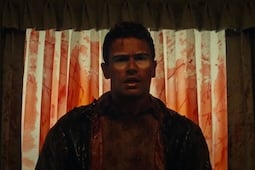
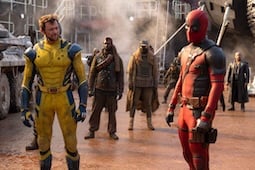
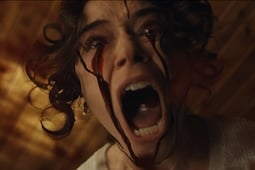

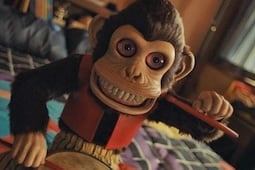
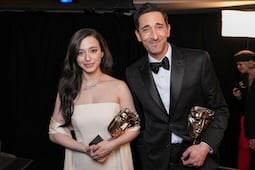
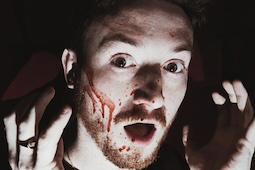

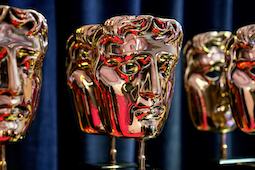





.jpg)
.png)






